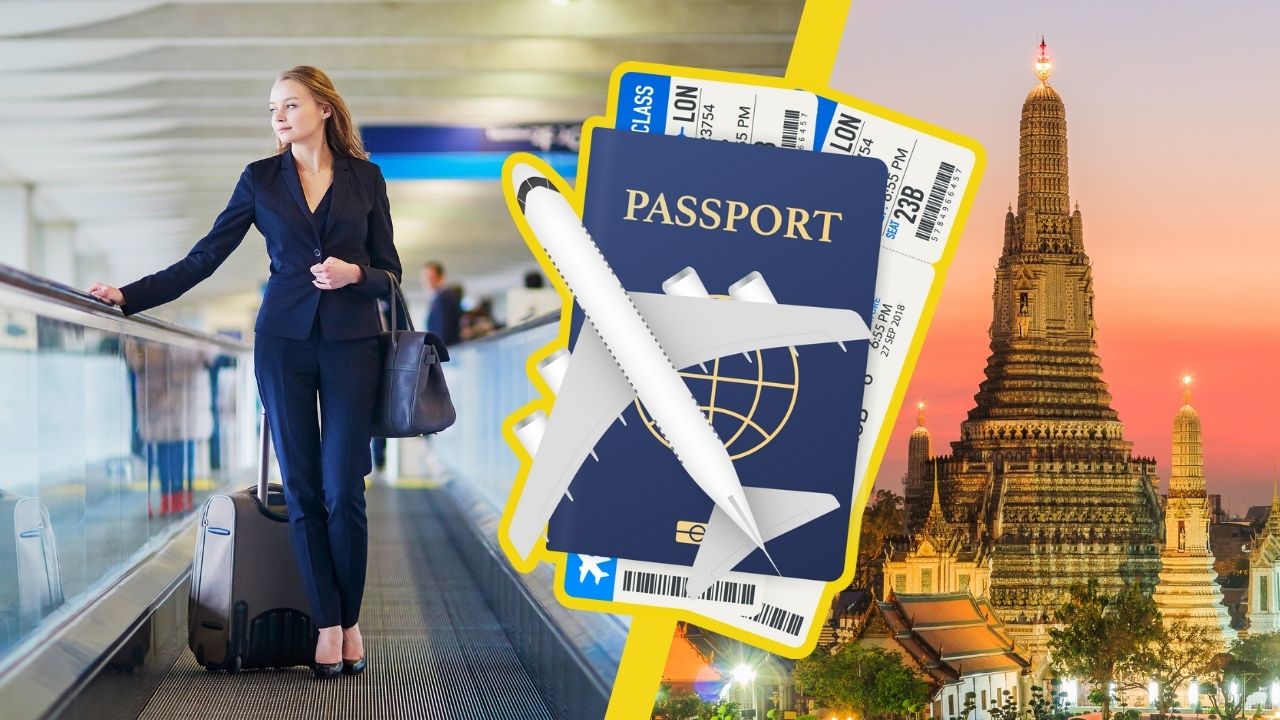
How To Get a Visa in Thailand - A Guide for Companies Hiring International Talent
13 Sept, 20246:30Thailand, with its vibrant culture, stunning landscapes, and burgeoning economy, has become ...

Thailand, with its vibrant culture, stunning landscapes, and burgeoning economy, has become a sought-after destination for expatriates looking to work abroad.
Hiring international talent can bring fresh perspectives and valuable skills to your company. If your business is expanding in Thailand or you're planning to bring in overseas professionals, understanding the work visa process is essential.
In this blog, we provide a comprehensive guide to help your company navigate the steps to obtain a work visa for your foreign employees in Thailand.
Step 1: Understanding the Types of Work Visas
In Thailand, the primary visa for foreign employees is the Non-Immigrant Visa “B” (Business); this is a prerequisite to obtaining a work permit. You should familiarise yourself with the different categories of Non-Immigrant B Visas to determine the most appropriate one for your prospective employees.
- Non-Immigrant Visa "B" (Business Visa): For general business and employment purposes.
- Non-Immigrant Visa "B-A" (Business Approved Visa): Requires approval from the Immigration Bureau.
- Non-Immigrant Visa "IB" (Investment and Business Visa): For those involved in investment projects endorsed by the Board of Investment of Thailand (BOI).
- Non-Immigrant Visa "B" (Teaching): For foreigners intending to work as teachers below the university level.

Step 2: Preparing Required Documents
There are several documents a company may be required to provide when hiring international candidates. Once a job offer and contract have been secured, you will need to provide:
- Passport: Must have at least six months of validity.
- Visa Application Form: Completed and signed.
- Passport-sized photograph: Recent (taken within the last six months).
- Letter of Employment: From your prospective employer in Thailand, stating your position, salary, and contract duration.
- Company Documents: Including the company's business registration and license, list of shareholders, company profile, details of the business operations, and balance sheet.
- Educational Certificates: Relevant to the position being offered.
- Work Permit: While this is not required at the visa application stage, it is necessary once you start working in Thailand.
- Police Clearance Certificate: May be required depending on the consulate's discretion.

Step 3: Submit the Application
The employee or employers must submit the visa application, along with the required documentation, to the nearest Thai embassy or consulate. The processing time can vary, but it typically takes from a few days up to a couple of weeks. Ensuring that all documents are accurately filled out will reduce the likelihood of delays.
Once approved, employees will receive their Non-Immigrant Visa "B," which allows them to enter Thailand. This visa is initially valid for 90 days.
Step 4: Apply for a Work Permit
After obtaining their Non-Immigrant Visa "B" and coming to Thailand, the employees must obtain a work permit. Employers should insist their employees with this task, and the application must then be submitted to the Ministry of Labour.
Required Documents for Work Permit Application:
- Passport: Including Non-Immigrant Visa "B."
- Departure Card TM.6: Obtained upon entry to Thailand.
- Education Certificates: Originals and copies.
- Medical Certificate: Issued within the last 30 days.
- Three 5x6 cm Photos: Taken within the last six months.
- Employment Contract: Stating position, salary, and job description.
- Company Documents: Similar to those submitted for the visa application.
Step 5: Apply for an Extension of Stay
Once an employee has been granted a work permit, they can then apply for an extension of stay. This extension allows them to stay in Thailand for up to one year and can be renewed annually. The application is submitted to the Immigration Bureau.
This requires similar documentation to the initial work permit, along with an additional Application Form TM.7.

Tips for a Smooth Process
- Plan Ahead: Start the visa application process well in advance of the intended start date to account for any application errors or delays.
- Keep Up Communication: Employers can and should provide crucial support and ensure all documents are in order.
- Stay Updated: Visa regulations can change, so regularly check with the Thai embassy or consulate for the latest requirements.
Expanding Globally
Expanding your business into Thailand requires careful planning and adherence to visa regulations. Companies and clients can facilitate a smooth and successful entry into the market by understanding the types of visas available, preparing the necessary documentation, and following the outlined steps.
Partnering with an Employer of Record (EOR) can simplify the process, enabling you to focus on your business goals whilst your EOR partner navigates the complexities of hiring abroad.
NES Fircroft’s expert recruitment teams source engineering and technical professionals for global roles with some of the biggest names in the Oil and Gas, Power and Renewables, Construction and Infrastructure, Life Sciences, Mining, Automotive, and Chemicals sectors worldwide.
With offices in over 45 countries and decades of experience in international expansion, we can help you hire employees quickly, compliantly and with minimal risk.
Contact us to discuss how we can support your international workforce.








